Tomo Koizumi's Fashion Fairy Tale Has Led Him to a New Pucci Collaboration
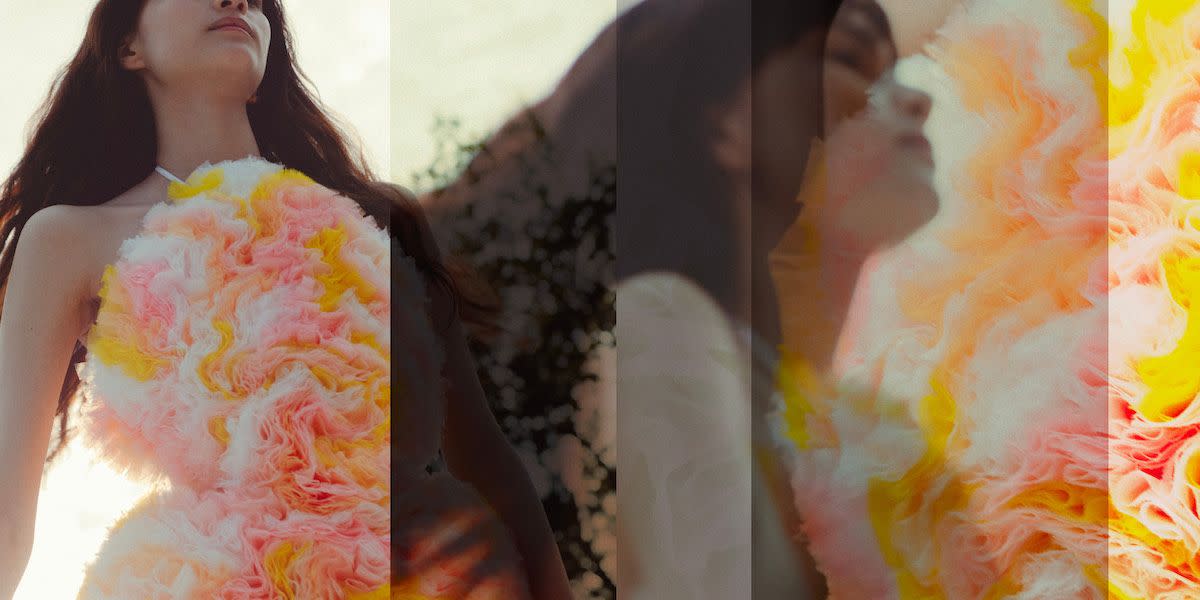
Everyone wants a piece of Tomo Koizumi. Since launching his costume business while studying art at the National Chiba University, the Japanese designer has steadily become one of the most sought-after talents in the fashion industry. He’s dressed celebrities, shown at New York Fashion Week, garnered the joint 2020 LVMH Prize, and most recently presented his capsule collection with Pucci at Milan Fashion Week. Still, global renown was never a factor for the 32-year-old while growing up in the outskirts of Tokyo. His goal was simply to live a stress-free life, creating extravagant gowns and dresses marked by layers upon layers of ruffles for private clients.
Indeed, it was his love of John Galliano’s collections at Christian Dior that sparked his interest in fashion—the way he piled on the pomp and pageantry, presenting looks that were the stuff of fairy tales. Without formal training, Koizumi tried to re-create the same vibe with his own designs, playing with proportions and color to form one-of-kind tulle pieces that eschew notions of practicality. It was this aesthetic that drew the attention of Lady Gaga, who effectively put him on the industry’s radar when she wore one of his signature ensembles while promoting her album Joanne in Japan. Soon after, designer Giles Deacon found him on Instagram and showed his account to stylist Katie Grand.
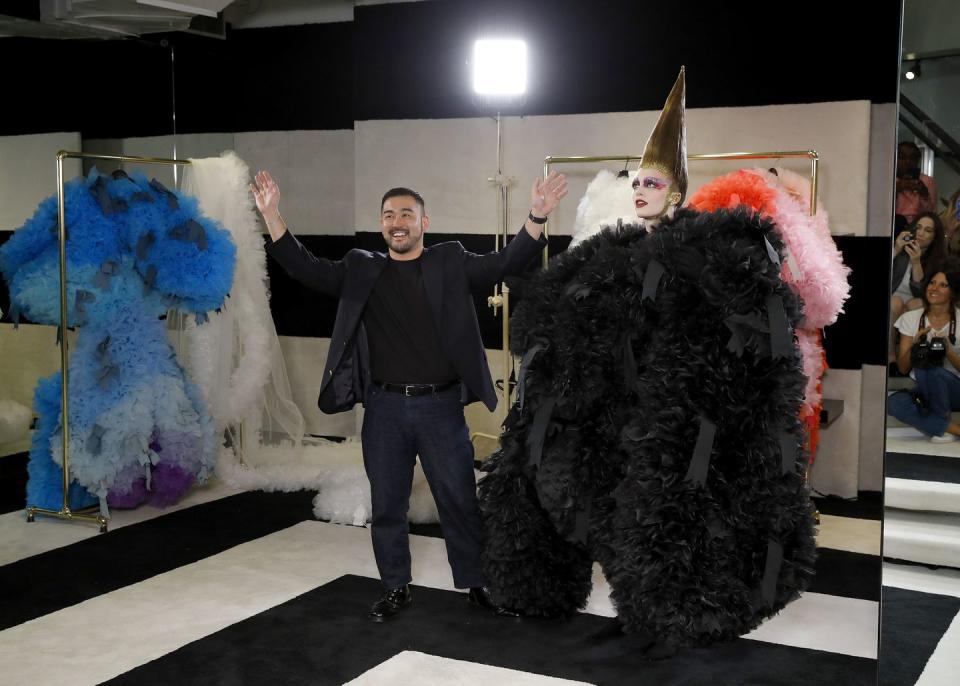
Taken by his distinct point of view, Grand started a conversation with Koizumi, encouraging him to present at New York Fashion Week in 2019. It was an opportunity he wouldn’t deign to pass up, and with the help of Grand’s frequent collaborator, Marc Jacobs (who offered his New York flagship as a show venue), and slew of Hollywood stars who modeled his collection, Koizumi instantly attracted the ardor of the fashion industry. His follow-up that September proved he was no flash in the pan, which led him to sign up for the LVMH Prize in December.
After jointly winning the prestigious honor (a fact he is still stunned by), Pucci called him for a collaboration. And though the Italian label’s aesthetic, known for its vibrant prints on sleek silk dresses that imbue a fun-in-the sun vibe, is a departure from Koizumi’s theatrical sensibilities, both share a belief that fashion is meant to spread joy and optimism. The partnership, to be sure, is just another example of his storybook trajectory—one the designer never dreamed of having, but one he humbly welcomes.
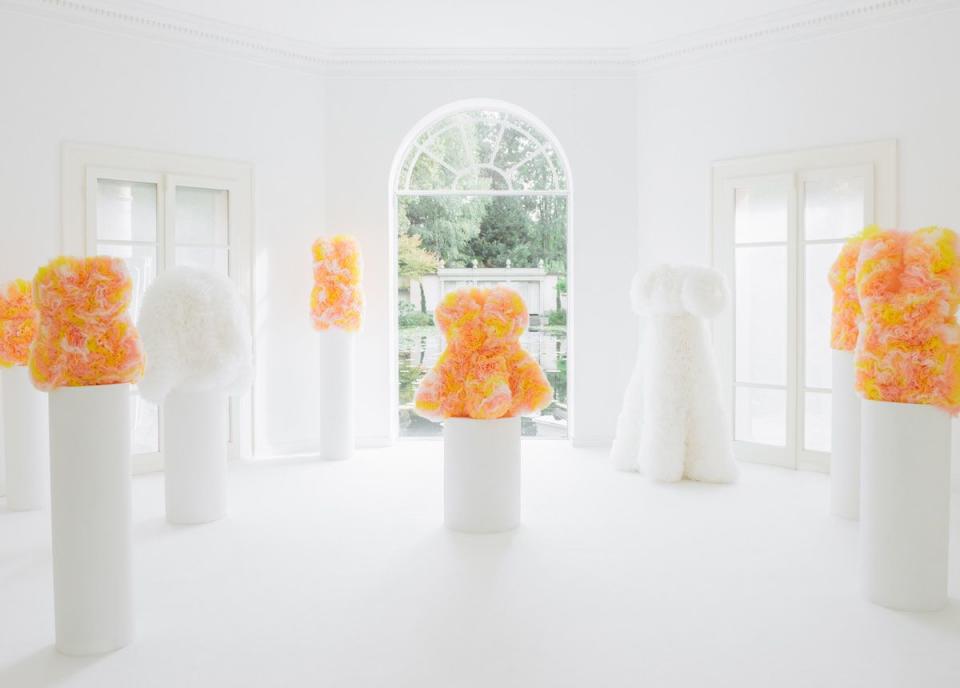
Ahead, Koizumi chats about his serendipitous rise to the top, from creating one-off pieces to a capsule line with Pucci.
It's a strange time in the fashion industry. How are you coping with all these changes?
Actually, it hasn't influenced my business, because I only do custom orders so far. If I don't produce the pieces, if I don't have orders, I just don't do anything. I just keep quiet. There were some collaborations, but I still keep my brand and team really small. I like to handle everything by myself.
Why do you like having a small business?
I really don't like being stressed. I just want to make beautiful things.
When you first started in fashion, what was your goal?
What I do now is more than I dreamed about or expected. I was just a countryside boy who didn't study fashion. I didn't expect something to happen like this. Working with Pucci has been more than a dream.
Being a countryside boy who never studied fashion, what fascinated you about the industry?
When I was 14, the Internet wasn't like it is now. I just got information about fashion through the magazines mostly. I really loved Galliano when he was at Dior at that time. I loved the theatricality and how it was not normal fashion. I'm still not sure I can say it was actual fashion, but that's what I thought fashion was, and I've been following that idea until now.
How did you start your business in Japan?
I've been working as a costume designer for more than nine years now. That's what I mostly do, custom-made pieces and costumes for singers I use for advertising. I started my business when I was studying in university.
Is that when you caught the attention of Lady Gaga? How did that happen?
Yeah, that happened four years ago. Besides my costume design business, I design samples to get more orders. That's when I invented the ruffle design.

Where did this idea of ruffles come from?
I invented the technique for costume design. I like how it looks theatrical and really extra. Because I really loved Galliano at Dior, it is all about extravaganza for me. I really want to express something like this, but I didn't have the right skills to make or alter a dress. I did my best with what I had that time. I kind of invented how to make it myself, in my own way. I played with colors, shapes, and volume.
You've made a name for yourself in Japan and had a thriving business there. Why did you decide to come Stateside?
I'm based in Tokyo, and don't think I'll leave. Katie Grand encouraged me to have a fashion show in New York at the Marc Jacobs store. I wasn't familiar with New York at all. I didn't have any friends there until my first show. But I had to say yes. It was the biggest chance opportunity in my career, so I had to do it.
How did Katie Grand become familiar with your work?
I met her through Giles Deacon, who I connected with on Instagram. Actually, I didn't meet Giles, Katie, or anyone until the show in New York.
Why do you think all these big names in the industry are backing you?
Until now, I really don't know why.
It almost sounds like a fairy tale. Do you feel like Cinderella just a little bit?
People say that. And I feel that too. Again, I still really don't know why, because my designs aren't really fashion. They're really costumes. That's why I couldn't have imagined an actual fashion show at Fashion Week.
You've said previously that you don't like being commercial at all. Can you elaborate on that?
I don't like to produce things in a factory. It seems stressful. If I produce stuff, I have to work with a small team. I don't like working with a lot of people. I like the freedom of being creative.
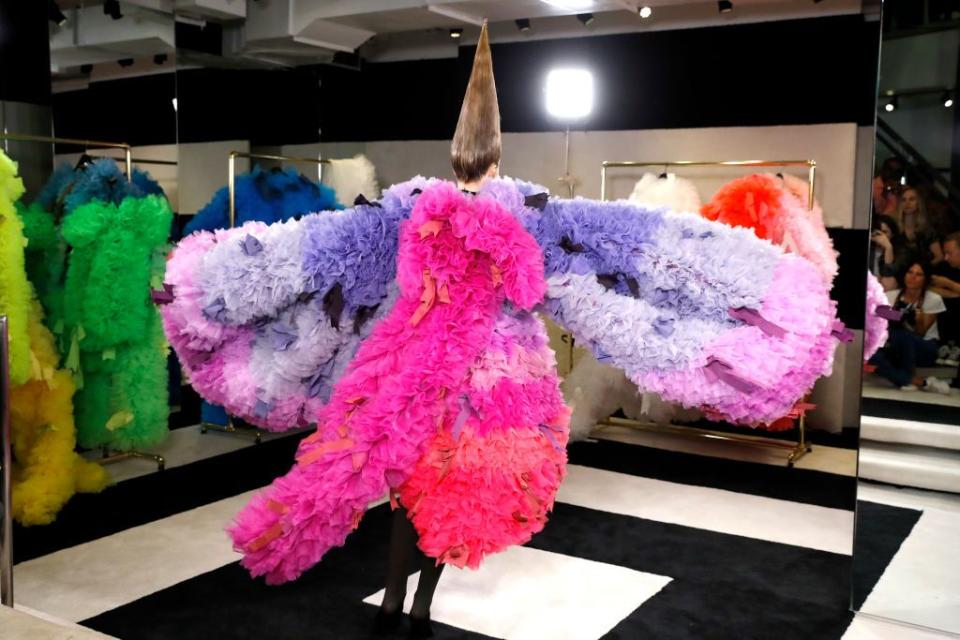
Who are the people buying your designs?
Now, I have several private clients, mostly in the U.S. I made a dress for the Met Gala last year, and several museums bought my dresses. I'm going to have an exhibition in São Paulo.
You are?
Yeah, next month. But I cannot go to Brazil because of COVID.
Speaking of COVID, what did you do during your time in lockdown?
I was in Tokyo. It was not bad for me, because, since my first show, I was traveling too much, maybe twice in every month. It was too busy for me, and I couldn't have free time to research. I prefer playing with my cats.
It sounds like you were taking it easy. But I'm sure there were a lot of people coming at you, especially after you won the LVMH Prize. How did that process go?
The LVMH Prize is a dream for every young designer. You have to have two collections at least, and after my show last September, I was able to apply at the end of December.
And you won.
Did I win? Yeah, I think they said I was a joint winner.
That's amazing. Did you receive a lot of calls afterward from people wanting to work with you?
I'm not sure, because after my first show, everything that happened didn't seem realistic to me. Everything felt unbelievable. I'm not sure why it's happening to me. I'm really happy to do everything, and like working with great people, and take things when they come.
Sound like you're just going with the flow.
Something like that.
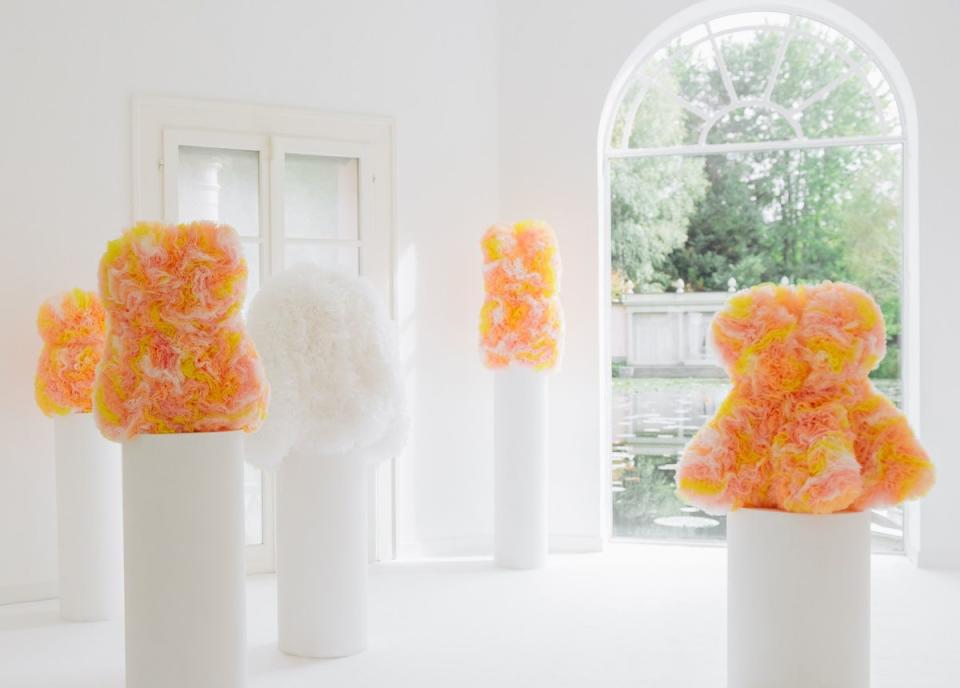
Is this when Pucci reached out to you?
Yes. When I got the call from the Pucci team, I was really surprised and also really excited because Pucci is one of my favorite brands. Pucci is actually more than a brand, it is a fashion house with great archives, a great legacy. It's every designer's dream.
You're a fan of Galliano, extravagance, and ruffles, but Pucci is best known for prints and sleek resortwear. What is the connective thread between you and the brand?
I really love Galliano, but also I grew up in this modern moment. What they do is different to what Galliano did. But I have always been a fan of their prints and their beautiful, bold colors. They are great at harmonizing colors. I can say that I often stole colors from Pucci prints. For me, it was really natural, because—maybe the expression is different—but we have a passion for colors and both do really feminine designs. We are both optimistic, joyous, and fun.
Aside from Pucci, you also showed at New York Fashion Week with a bridal company this season.
I try to make one annual collection in a year. I got the bridal collaboration in April, and we made a wedding dress collection together. The idea of bridal always interested me. At the same time, also working with Pucci.
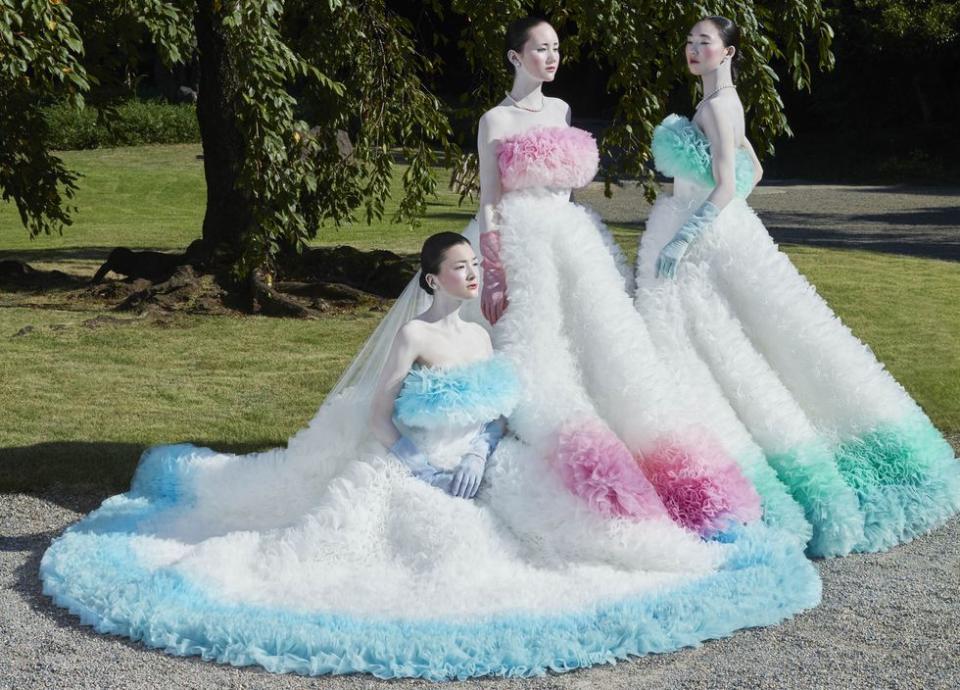
How did that come about? You don't like really taking on too many tasks at one time from what I've gathered.
It wasn't stressful for me. I got help with the wedding company, who produced the dresses. Also, Pucci helped me make all the pieces. We made samples in Tokyo with our hands. Maybe it's because I didn't have to go on business trips. They came to me.
How would you describe your show with Pucci at Milan Fashion Week?
We're going to have a presentation in Pucci's showroom tomorrow, and we're going to show a short film with an Italian young director, which is really interesting. I watched it today. The colors are really great and really soft. It's really feminine and sophisticated. I really love the vibe of the video. It's really optimistic.
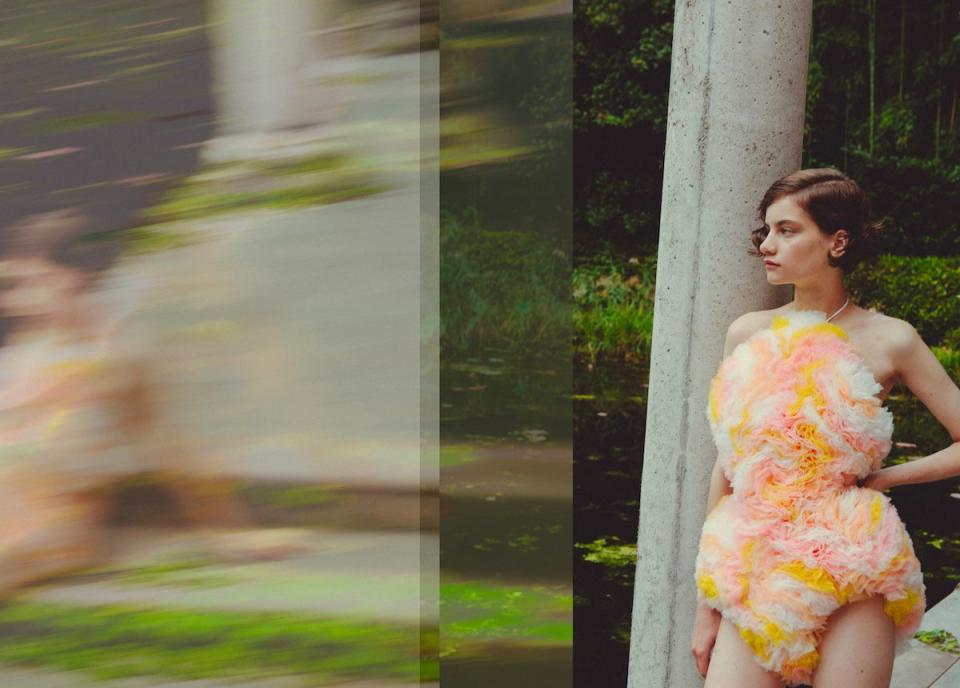
Now that you did this collection with Pucci, what else do you have coming down the pike?
Like you said, I'm just going with the flow.
How about long-term goals?
Maybe, if I have the chance, I would like to be the creative director at a fashion house. It's one of my dreams.
Like Galliano at Dior?
Yeah, something like that.
This interview has been edited and condensed for clarity.
You Might Also Like


